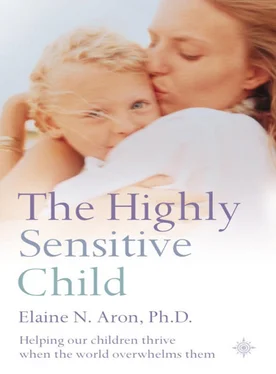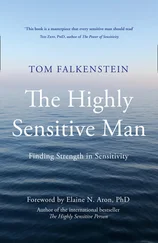When Sam was nine months old I put on a choke collar and took her out for her first obedience lesson, learning to sit. I gave her backside a smart slap (I had been taught that a push would cause the dog to resist and push back), jerked the collar to bring her head up and get her attention, and said “sit.” She collapsed on the ground, quivering. Since that was the wrong response, I got her to her feet and repeated the standard way to train a dog to sit—spank, jerk, order. She crouched lower to the ground, shook more, her eyes pleading with me, “Why? What have I done ?”
I knew enough to stop and think it over. But the next day I tried the same method. I knew that once she did it right I could praise her and she would understand that better. But first she had to sit properly.
By the time I figured out that a gentle pressure and kind word would do it, I had almost ruined her. In fact, she never got over shaking and crouching when I brought out that collar. She learned to sit, stay, heel, and much more, once I got it that all she needed was to understand what I wanted: Wait here, go rest in the corner, meet me here later, fetch it, carry it, herd away the cows, gather up the puppies, keep the baby in the yard. Often she knew what was needed before I did—like bringing my husband and me together when we had lost each other in the woods at night, or driving off a burglar. (The joke in my family growing up was that Star the beagle would have gone off with any burglar with a hot dog in his pocket.)
It was natural for Sam to know what was needed and to care enough about us to do it because she was so sensitive . As for the dog shows, we never went to any—something about her made me not want to take advantage of her goodwill by making her a public spectacle.
I doubt that any method would have made Star the beagle consistently obedient when her leash was off, but the usual methods worked well enough to teach her what I wanted. Sam needed much more specialized skills and thoughtfulness on my part. That is how it is when an animal or child can almost read your mind and be quite overwhelmed by a harsh word from you, the beloved authority. I still did not “officially” know about this trait when my son was born. I did not know until he was grown and gone. But Sam had given me a good intuitive introduction.
Not Knowing How Makes Parenting Anything but Satisfying
I had thought of myself as a very good dog trainer when I started in with Sam, and there was a showcase full of trophies and ribbons to prove it. But Sam humbled me. She also made me feel guilty for causing her so much stress, bewildered as to why the usual methods did not work, depressed about myself for failing, angry with her for being such a wimpy dog, and isolated (if the standard methods did not work, who could I turn to for help?). I obsessed about why she was acting so strangely, and when I redoubled my efforts I only made her worse. At that point, training Sam was not satisfying.
Lack of skill in parenting an HSC can cause the same emotions. You think you are pretty good at parenting, especially if you have some experience with children. Then along comes this child who humbles you. I have heard parents talk about all of it: feeling guilty for their child’s obvious suffering at their hands, public embarrassment about their child’s shyness, fussiness, tears over “nothing,” fears, and so forth. There is the bewilderment. And for some parents there is depression, especially as sleepless nights pile up. There is anger, a sense of inadequacy, isolation from other parents with “normal” children. Some parents feel victimized, trapped, overinvolved. It can affect a marriage, the other children, and a parent’s health. And it is definitely not satisfying.
DIFFICULT VERSUS EASY HSCs
Parenting certain HSCs is also more difficult than parenting others. Some are real “drama queens” and demanding “little princes.” This partly depends on other aspects of their temperament, such as their persistence, flexibility, and emotional intensity, plus the child’s role models and general environment. (If your frustration, or anything else in your life, is making you upset, demanding, or out of control, you can hardly expect your child to be different.)
I also find that parents who are more accepting of the trait and generally available and responsive to their child are the ones, ironically, whose HSCs are more “trouble” when small. This is because their child feels free to express his feelings—to get angry, wildly excited, frustrated, hurt, frightened, and overwhelmed. Once the feelings are out, however, the skilled parent teaches the child how to cope with them.
Parents who are less available and responsive—perhaps they are overwhelmed themselves, or not comfortable with intense emotions—may cause an HSC to hide her feelings in order to be accepted and not cause any trouble. But the child never learns to cope with these bottled-up feelings, and they usually resurface in other ways in adulthood, when it is much harder to fix. So I always worry a bit when parents tell me that their HSC “never caused us any trouble at all.”
With those of you who are trying so hard, only to find that your child is still not happy, outgoing, and “normal,” I often see a vicious cycle: You worry, you try harder to shape your child to meet your expectations, your child does not behave the way you want (because he cannot), so you worry more, try harder, and so forth. Both you and he feel like failures. So we return to the first advice in this book: Realize that your child’s unusual behaviors are not your fault and not your child’s fault. HSCs are not being difficult on purpose!
This cycle is more common with nonsensitive parents of an HSC—a situation thoroughly discussed in the next chapter. But even highly sensitive parents can be unsure how to cope with an HSC and desperately wish their child was different.
Mitchell’s Mother Finally “Gets Out of Her Own Way”
Mitchell’s mother did not realize that she and her son were both highly sensitive. Sharon had been raised in a pretty tough, not very sensitive family. She did not remember consciously adapting to them. She just did.
But she was very sensitive to her new baby, Mitchell. She loved to sing, and she could not miss the signs that her baby did not like to be sung to. When he was older, he did not like to sing either—at least not in the children’s choir in which she had planned to see him shine. Sharon was equally frustrated when he would not wear a costume at Halloween and still needed a pacifier at four. And she was sad that “he couldn’t initiate—I saw him as always the follower, the imitator, never the leader.”
Then a speaker came to Mitchell’s preschool and talked about sensitive children. “Suddenly,” Sharon said, “the light went on.” She went on to tell me how much she wishes she had understood sooner and “gotten out of my own way and stopped judging my parenting. Deep down I had known what to do. But I was not doing it and was blaming myself for the results, especially when the rest of the family thought there was something wrong with what I was doing. Now all that is over. I mold myself to fit his behavior. I let him tell me what he needs.
“And he has so many wonderful qualities, too—his sweetness and gentleness. So if he doesn’t want to run off and do a skit at our family reunion, now it’s not a big deal to me. It’s almost a pleasure to say, ‘No, he doesn’t want to do it.’ It feels good to understand so well when others don’t.”
THE SIX MOST COMMON PROBLEMS
So let’s get to work by discussing six facets of your child’s high sensitivity and how each, although neutral in itself, can cause certain problems for you as a parent until you have the right skills. You will also begin to learn some of those skills in this chapter.
Читать дальше











